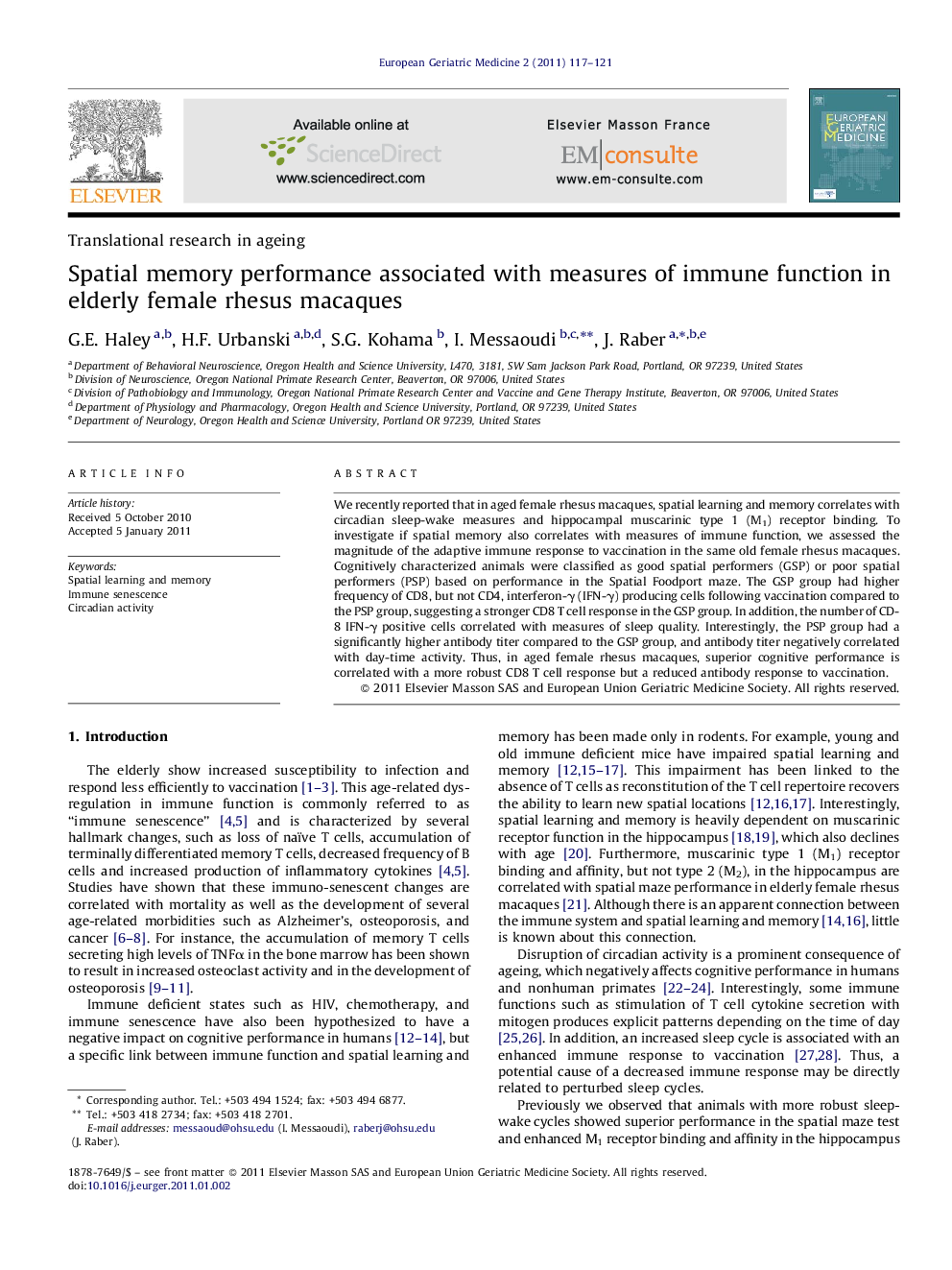| Article ID | Journal | Published Year | Pages | File Type |
|---|---|---|---|---|
| 3325007 | European Geriatric Medicine | 2011 | 5 Pages |
We recently reported that in aged female rhesus macaques, spatial learning and memory correlates with circadian sleep-wake measures and hippocampal muscarinic type 1 (M1) receptor binding. To investigate if spatial memory also correlates with measures of immune function, we assessed the magnitude of the adaptive immune response to vaccination in the same old female rhesus macaques. Cognitively characterized animals were classified as good spatial performers (GSP) or poor spatial performers (PSP) based on performance in the Spatial Foodport maze. The GSP group had higher frequency of CD8, but not CD4, interferon-γ (IFN-γ) producing cells following vaccination compared to the PSP group, suggesting a stronger CD8 T cell response in the GSP group. In addition, the number of CD-8 IFN-γ positive cells correlated with measures of sleep quality. Interestingly, the PSP group had a significantly higher antibody titer compared to the GSP group, and antibody titer negatively correlated with day-time activity. Thus, in aged female rhesus macaques, superior cognitive performance is correlated with a more robust CD8 T cell response but a reduced antibody response to vaccination.
